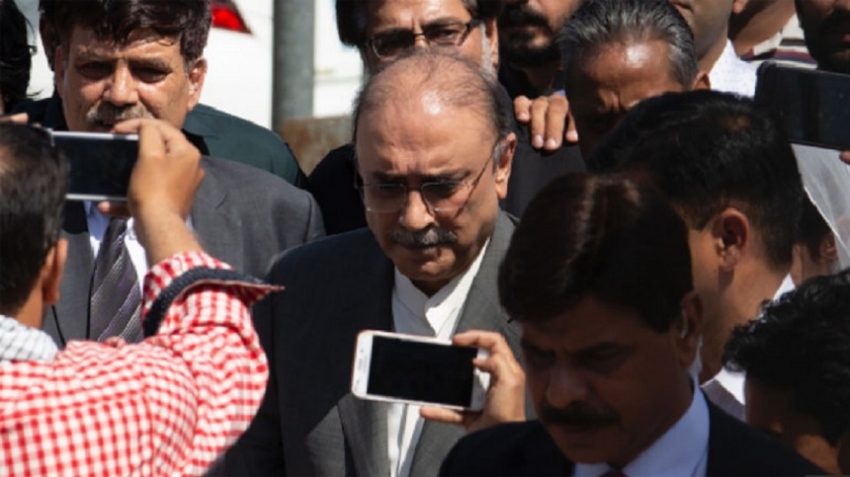He was elected to office after the assassination of his wife, former Prime Minister Benazir Bhutto. Footage on Pakistani media shows members of the National Accountability Bureau (NAB) entering his home after the Islamabad High Court's decision. He was seen leaving the residence with his son, Bilawal Bhutto Zardari, who is the current chair of the opposition Pakistan People's Party (PPP). Supporters at the address chanted "long live Bhutto", in reference to the family's political dynasty, Reuters news agency reported.
Mr Zardari has long been considered one of the most controversial figures in Pakistani politics. He spent time in jail in the 1990s and 2000s, and was nicknamed "Mr 10%" for the commissions on government contracts he allegedly received. What is Mr Zardari accused of?
Investigators say fake bank accounts were used to funnel billions of rupees. Dozens of companies and hundreds of people have been implicated in the scandal, according to Pakistani media reports.
Mr Zardari denies wrongdoing in this latest "fake accounts" case, which has been under investigation since 2015. He and his sister, lawmaker Faryal Talpur, had their interim bail extended multiple times before Monday's decision. Both attended court earlier on Monday under tight security conditions, but Ms Talpur has not yet been taken into custody. Pakistan's interior minister, Ejaz Shah, told parliament on Monday that the government had no role in Mr Zardari's arrest.
A party spokesman has appealed for PPP supporters to remain peaceful. Mr Zardari has only been arrested, not convicted yet, but the move will be a blow for the PPP party he jointly leads and the wider political opposition. Former Prime Minister Nawaz Sharif (from the PMLN party) is already in jail having been sentenced in another corruption case in 2018.
The current government lead by Prime Minister Imran Khan, were elected on a strident anti-corruption platform, but they will be keen not to be seen as interfering in the case against Mr Zardari. He has always dismissed allegations against him as being politically motivated. Mr Zardari is not a popular figure in Pakistan, and few ordinary people will have much sympathy for him. But there may well be questions about why he has been taken into custody now. Is an element of political vendetta indeed at play, or is this long overdue accountability? They are the same questions that were being asked during the trial of former PM Nawaz Sharif.




















